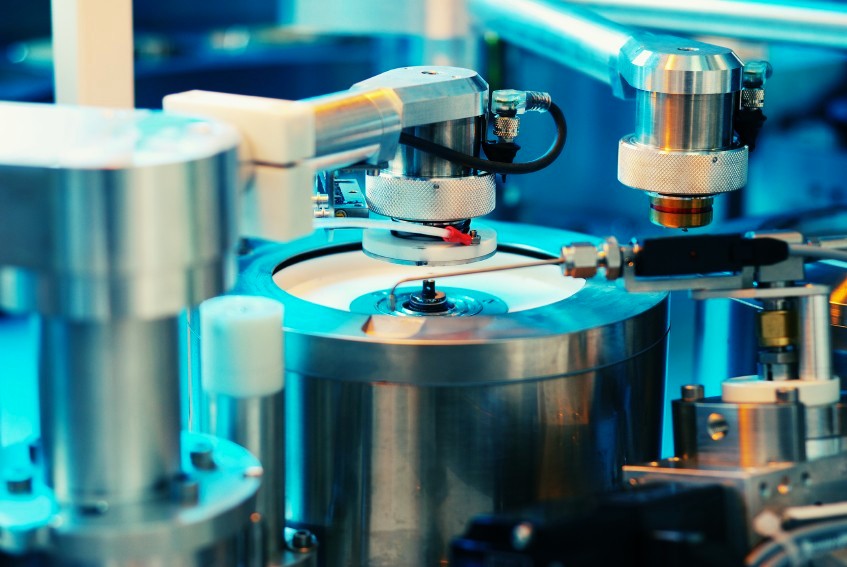When creating multiple copies of a disc, such as a DVD or CD, there are two main methods: replication and duplication. Although both techniques serve the same purpose, they differ in how they produce the copies and the quantities that can be produced. This article will discuss the differences between disc replication and duplication and their pros and cons.
Disc Replication
Disc replication creates a glass master of the original disc, which is then used to create a stamper. This stamper is then used to replicate the discs in bulk. Disc replication is the same process commercial disc manufacturers use to produce DVDs, CDs, and other optical discs. Here are some of the advantages and disadvantages of disc replication:
Advantages
- High-quality copies: Disc replication produces high-quality copies with consistent results across all the copies.
- Cost-effective: Disc replication is a cost-effective option compared to duplication when producing large quantities of discs.
- Professional finish: Disc replication produces discs with a professional finish, similar to the quality of commercial discs.
Disadvantages
- Longer turnaround time: Creating a glass master and stamper takes time and can cause a longer turnaround time.
- High initial cost: The initial cost of creating the glass master and stamper can be expensive, making it a less viable option for smaller quantities.
Disc Duplication
Disc duplication is burning the data onto a blank DVD or CD using a duplicator machine. This is similar to burning a disc on your home computer but on a larger scale. Disc duplication is a viable option for smaller quantities of discs. Here are some of the advantages and disadvantages of disc duplication:
Advantages
- Faster turnaround time: Disc duplication has a faster turnaround time than disc replication since burning the data onto the disc is faster.
- Cost-effective for smaller quantities: Disc duplication is a cost-effective option for producing smaller quantities of discs.
Disadvantages
- Inconsistent results: Disc duplication can produce inconsistent results, with some discs having errors or playback issues.
- Lower quality: Disc duplication produces lower quality copies than disc replication, with a lower level of detail in the printing and labelling of the disc.
Which option is right for you?
The decision to choose disc replication or duplication depends on several factors, including the quantity of discs you need, the budget, and the turnaround time. Here are some scenarios where each option may be the better choice:
- Disc replication is ideal for producing large quantities of discs, such as 500 or more. The cost savings per disc offset the higher initial cost in the long run.
- Disc duplication is ideal for producing smaller quantities of discs, such as 100 or less. The lower initial cost makes it a cost-effective option for smaller quantities.
- If quality is the main concern, disc replication is better since it produces higher-quality copies with consistent results.
- If speed is the main concern, disc duplication is the better option since it has a faster turnaround time.
Bulk DVDs and Disc Replication vs Duplication
Bulk DVDs can be produced using either disc replication or duplication. However, the best option for producing bulk DVDs depends on the abovementioned factors: quantity, budget, and turnaround time. Here are some additional factors to consider when producing bulk DVDs:
- Quality control: When producing bulk DVDs, it is important to ensure consistent quality across all copies, which is a strength of disc replication.
- Customization: If you require customization of the disc, such as custom printing or labelling, disc replication is the better option since it produces a professional finish.
- Budget: If you have a tight budget, disc duplication may be the better option, especially for smaller quantities of discs.
Both disc replication and duplication have advantages and disadvantages, and the choice between them depends on several factors. For bulk DVD production, the decision will depend on the specific needs and goals of the project, such as budget, quantity, turnaround time, and quality control.
Whether you choose disc replication or duplication for your bulk DVD production needs depends on several factors. Consider your timeline, budget, quality needs, and customization requirements to make the right decision for your project. By carefully considering all the factors and working with a reliable disc duplication or replication service, you can ensure that your bulk DVD production project succeeds.

